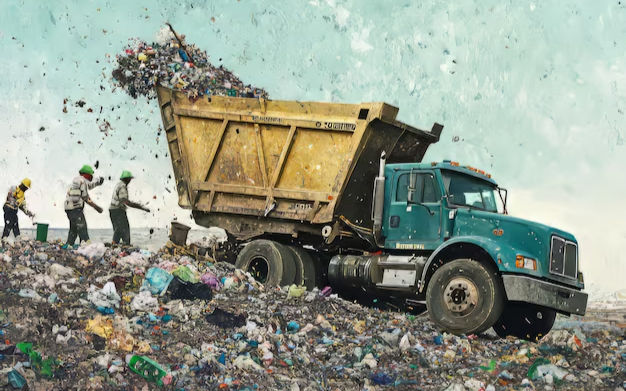Garbage Truck Maintenance and Safety Tips
- Sep 24, 2025
- 2 min read
Garbage trucks are essential to keeping communities clean and functioning. But operating these heavy-duty vehicles comes with unique challenges - from mechanical wear to safety risks. Whether you're a municipal sanitation department or a private waste hauler, maintaining your fleet and prioritizing safety is key to long-term success.

Here are the best practices for garbage truck maintenance and safety.
1. Conduct Daily Pre-Trip Inspections
Before hitting the road, drivers should perform a thorough inspection of their vehicles. This includes:
Checking brakes, lights, and mirrors
Inspecting tires for proper inflation and wear
Ensuring hydraulic and lifting mechanisms are functioning
Testing backup alarms and cameras
These checks help catch issues early and prevent breakdowns or accidents.
2. Prioritize Hydraulic System Maintenance
Hydraulics power the lifting and compacting mechanisms of garbage trucks. Regular maintenance should include:
Checking fluid levels
Inspecting hoses and cylinders for leaks or wear
Testing pressure relief valves for proper function
A failure in the hydraulic system can lead to costly downtime and safety hazards.
3. Train Drivers on Safety Protocols
Driver training is critical for reducing accidents and improving efficiency. Training should cover:
Defensive driving techniques
Emergency response procedures
Proper use of PPE (high-visibility clothing, gloves, boots)
Safe backing-up practices using spotters and cameras
Regular refresher courses and safety drills help reinforce these protocols.
4. Use Technology to Enhance Safety
Modern garbage trucks are equipped with in-cab technology that improves safety and efficiency:
GPS-based route guidance
Backup cameras and sensors
Real-time dispatch updates
Automated service confirmations
These tools reduce distractions, improve visibility, and streamline operations.
5. Plan Routes to Minimize Risk
Route optimization helps reduce unnecessary backing-up and exposure to high-traffic or pedestrian-heavy areas. Best practices include:
Avoiding left turns when possible
Scheduling pickups during low-traffic hours
Identifying hazardous intersections ahead of time
Efficient routing also reduces fuel consumption and wear on vehicles.
6. Protect Your Fleet with Comprehensive Insurance
Garbage trucks are high-value assets that face daily risks. Wexford Insurance offers tailored coverage for garbage truck companies, including:
Auto Liability Insurance (required by law)
Physical Damage Coverage (for collisions, theft, vandalism)
General Liability Insurance (for non-driving incidents)
Pollution Liability Insurance (for spills or leaks)
Workers’ Compensation Insurance (for employee injuries)
Whether you're a municipal hauler or a private operator, Wexford Insurance can help you build a policy that meets your operational and regulatory needs.
Conclusion
Garbage truck maintenance and safety are non-negotiable for waste management companies. By implementing daily inspections, training drivers, leveraging technology, and securing the right insurance coverage, you can keep your fleet running smoothly and safely. Wexford Insurance is here to support your business every step of the way. Contact today!




